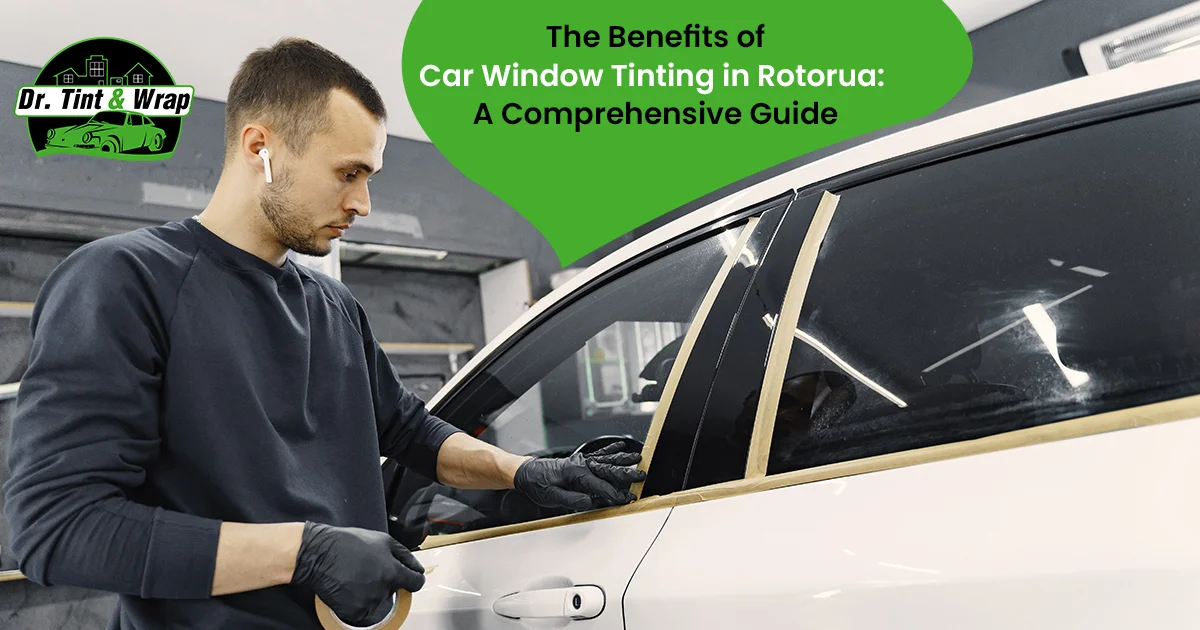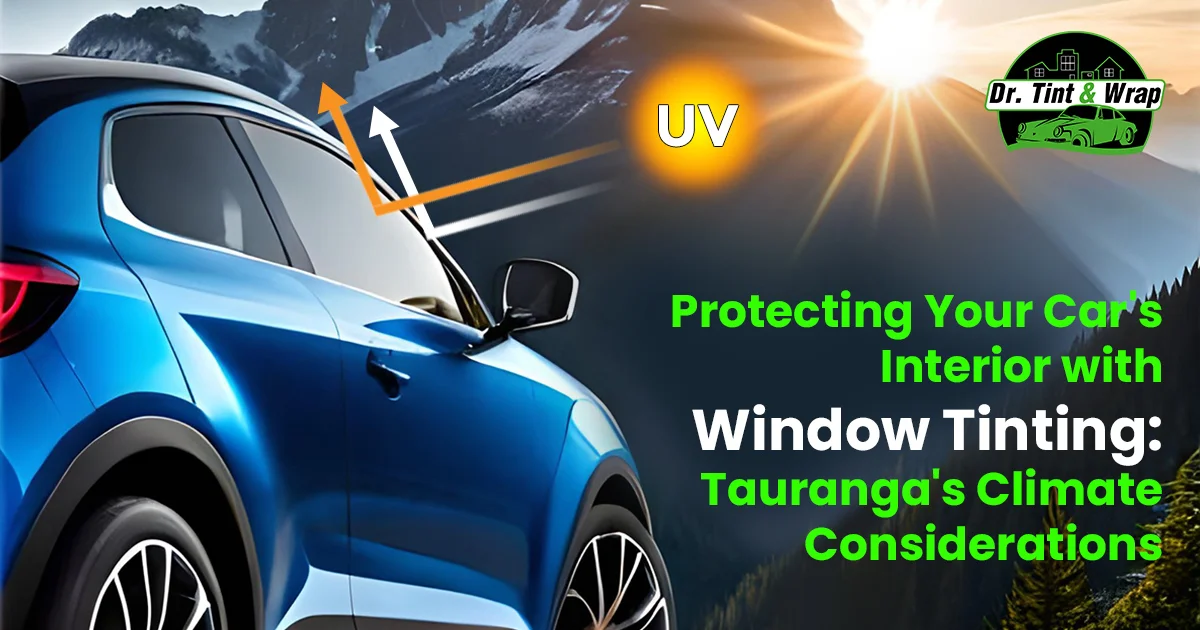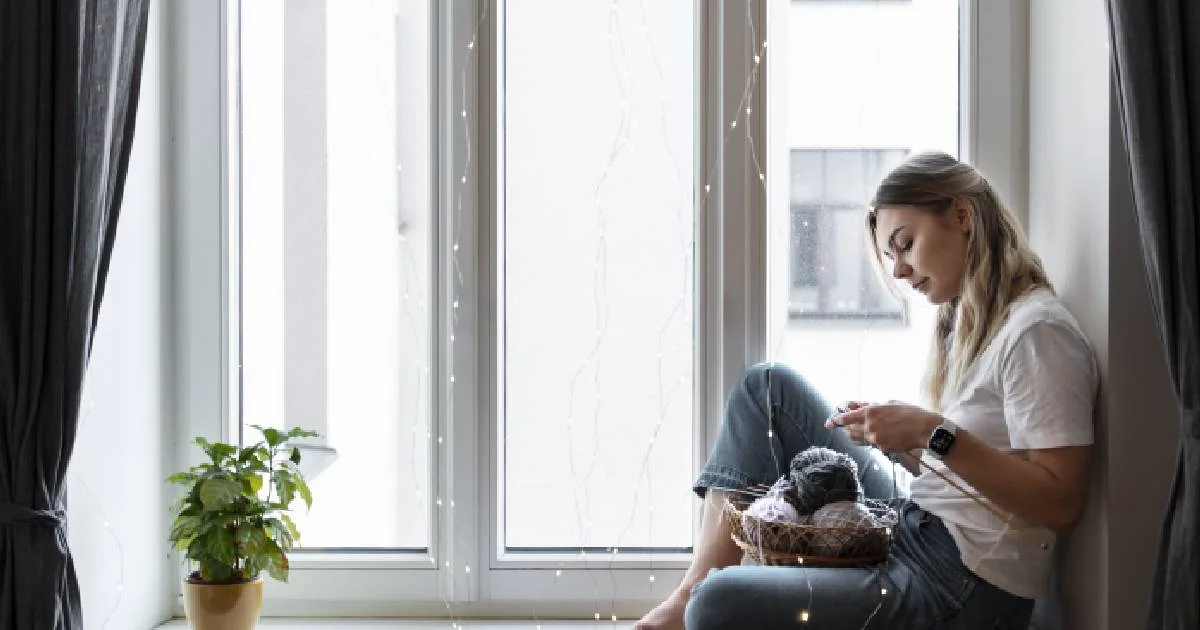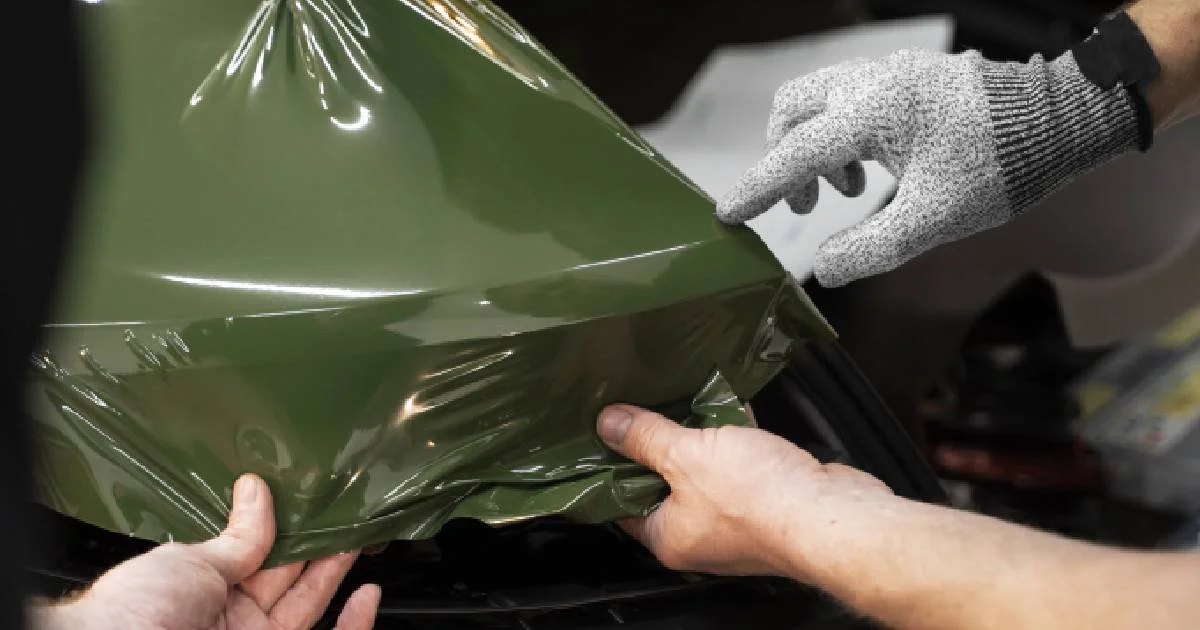
The Benefits of Car Window Tinting in Rotorua: A Comprehensive Guide
31 Jul 2023, By AdminCar owners in Rotorua have long been seeking ways to enhance their driving experience, not only for aesthetics but also for practicality. One of the most effective and popular methods to achieve this is through car window tinting. Whether you are a seasoned driver or a new car owner, understanding the advantages of car window tinting in Rotorua will undoubtedly influence your decision to invest in this beneficial modification. In this comprehensive guide, we will explore the various benefits of car window tinting, with a particular focus on the keyword "car window tinting Rotorua."
1. Improved Driving Comfort
Rotorua's climate can be intense, with harsh sunlight and rising temperatures during summer months. Car window tinting can significantly improve your driving comfort by reducing the amount of heat entering your vehicle. The tinting film acts as a barrier, blocking a significant portion of harmful UV rays, which not only provides a cooler interior but also protects your skin from potential damage caused by prolonged exposure to the sun.
2. Enhanced Privacy and Security
Privacy is a crucial aspect of driving, especially when you have valuable items in your car. Window tinting offers an added layer of privacy by making it more challenging for prying eyes to see inside your vehicle. This can deter potential thieves and safeguard your belongings. Moreover, window tinting strengthens your car windows, making them more resistant to shattering in case of accidents or attempted break-ins, thereby enhancing your overall security.
3. Glare Reduction for Safer Driving
Glare from the sun and headlights of other vehicles can be a major safety hazard while driving in Rotorua, particularly during sunrise and sunset. Car window tinting significantly reduces glare, improving visibility and reducing eye strain. This allows you to concentrate on the road better and enhances the overall safety of your driving experience.
4. Preservation of Upholstery and Interior
Prolonged exposure to sunlight can cause fading, cracking, and deterioration of your car's interior materials. Window tinting acts as a barrier against harmful UV rays, preventing interior damage and helping your car's upholstery maintain its appearance and value for a more extended period.
5. Energy Efficiency and Fuel Savings
As car window tinting effectively reduces the interior temperature, it reduces the need for air conditioning, especially during hot days in Rotorua. This, in turn, leads to improved fuel efficiency, helping you save money on gas while also reducing your carbon footprint.
6. Aesthetic Appeal and Vehicle Value
Car window tinting not only enhances your car's appearance but can also add value to your vehicle. The sleek and sophisticated look achieved through window tinting can make your car stand out and attract potential buyers if you decide to sell it in the future.
7. Health Benefits
UV rays can have harmful effects on your health, increasing the risk of skin cancer and other skin-related issues. Car window tinting with UV-blocking properties offers an extra layer of protection against these harmful rays, benefiting both the driver and passengers alike. Dr. Tint & Wap Rotorua is more than just a cosmetic modification. We offer numerous practical advantages that enhance your driving experience, protect your health, and preserve your vehicle's value. From increased driving comfort to improved privacy and security, and from glare reduction to energy efficiency, the benefits of window tinting are undeniable. So, if you're a car owner in Rotorua looking to elevate your driving experience, consider Dr. Tint & Wrap for professional car window tinting to enjoy all the incredible advantages and better driving experience.

Protecting Your Car's Interior with Window Tinting: Tauranga's Climate Considerations
31 Jul 2023, By AdminWhen it comes to protecting your car's interior, investing in window tinting is an excellent choice. Not only does it enhance your vehicle's appearance, but it also provides numerous benefits, especially in a city like Tauranga, where the climate can be intense. In this article, we will explore the advantages of car window tinting and discuss why it's crucial to consider Tauranga's climate when choosing the right tint for your car.
1. Preserving Your Car's Interior
Tauranga's climate, known for its sunny and hot summers, can take a toll on your car's interior. The constant exposure to harsh UV rays can cause fading, cracking, and discoloration of your car's upholstery, dashboard, and other interior components. Car window tinting acts as a protective shield, blocking up to 99% of harmful UV rays, thereby preserving the integrity and aesthetics of your vehicle's interior.
2. Heat Reduction
During Tauranga's scorching summers, the inside of your car can become unbearably hot, making it uncomfortable for both you and your passengers. Window tinting helps in minimizing heat build-up by blocking a significant amount of solar energy. By reducing the amount of heat that enters your vehicle, window tinting keeps the interior cooler, making your driving experience much more pleasant.
3. Glare Reduction and Enhanced Visibility
Glare from the sun can be a major distraction while driving, increasing the risk of accidents. Car window tinting reduces glare by effectively filtering the amount of light entering your vehicle. With reduced glare, you'll experience enhanced visibility, especially during sunrise, sunset, and bright sunny days, allowing you to focus better on the road and ensure a safer driving experience.
4. Privacy and Security
Window tinting adds an extra layer of privacy and security to your vehicle. It prevents prying eyes from easily seeing the contents of your car, reducing the chances of theft or break-ins. Additionally, if your window is ever shattered, the tint film helps hold the glass together, minimizing the risk of shattered glass shards inside the vehicle.
5. Protecting Your Health
The harmful UV rays that penetrate through windows not only damage your car's interior but can also pose health risks to you and your passengers. Prolonged exposure to UV rays can lead to skin damage, premature aging, and even an increased risk of skin cancer. Car window tinting acts as a sunscreen for your vehicle, protecting you and your loved ones from these harmful rays, and ensuring a safer and healthier driving environment.
Car window tinting is an essential investment for any vehicle owner in Tauranga, given the city's climate and the potential hazards it presents. By opting for window tinting, you can protect your car's interior from fading, cracking, and discoloration, while also enjoying the benefits of reduced heat, glare, increased privacy, and enhanced security. Moreover, the added protection against harmful UV rays ensures a safer and healthier driving experience for you and your passengers.
When considering car window tinting, it's crucial to consult a professional tinting service that can provide guidance based on Tauranga's climate and local regulations. Dr. Tint & Wrap is locally owned and specializes in car window tinting, offering top-quality services in Tauranga. Their expert tinting solutions effectively protect your car's interior while providing the best window tinting options available. By choosing the right tint and having it professionally installed, you can enjoy all the advantages while complying with the laws. Invest in car window tinting today with Dr. Tint & Wrap and safeguard your vehicle's interior, comfort, and overall driving experience in Tauranga's challenging climate.

Enhance Your Privacy and Security with Home Window Tinting
31 Jul 2023, By AdminIntroduction
Home Window Tinting is a process where a thin film is applied to the windows of a residence to reduce the amount of visible light, UV rays, and heat that enters the interior. This tinting film is typically made of polyester and can come in various shades. The primary purpose is to enhance privacy and security by limiting the view into your home from the outside.
What is Home Window Tinting, and how does it enhance privacy and security?
Home Window Tinting is a process where a thin film is applied to the windows of a residence to reduce the amount of visible light, UV rays, and heat that enters the interior. This tinting film is typically made of polyester and can come in various shades. The primary purpose is to enhance privacy and security by limiting the view into your home from the outside.
How does Home Window Tinting contribute to privacy at home?
Home Window Tinting provides an additional layer of privacy by obstructing the view into your home. It allows you to enjoy natural light without compromising your privacy, making it difficult for outsiders to see the interiors of your house. This is especially beneficial for ground-level windows and homes in close proximity to neighbors or busy streets.
Can Home Window Tinting protect against harmful UV rays?
Absolutely! One of the significant benefits of Home Window Tinting is its ability to block a significant portion of harmful UV rays. This not only helps in safeguarding your skin from potential damage but also prevents fading and deterioration of your furniture, flooring, and other belongings due to prolonged exposure to sunlight.
How does Home Window Tinting contribute to energy efficiency?
Home Window Tinting can help regulate the temperature inside your home by reducing the amount of heat that enters through the windows. This means less reliance on air conditioning during hot days, resulting in energy savings. It acts as an insulator, keeping your home cooler in the summer and warmer in the winter, thus contributing to overall energy efficiency.
Are there different types of window tinting available for homes?
Yes, there are various types of Home Window Tinting films available. These include reflective, dyed, and ceramic films. Reflective films are excellent for blocking heat, while dyed films are more for privacy. Ceramic films, on the other hand, offer a good balance between heat rejection and maintaining natural light.
How does Home Window Tinting enhance security?
Home Window Tinting enhances security by adding an extra layer of protection to your windows. The film makes it more difficult for burglars to see inside your home, making it less likely that they will attempt a break-in. Additionally, the film can hold shattered glass together in case of breakage, reducing the risk of injury and making it harder for intruders to gain access.
Does Home Window Tinting require special maintenance?
Home Window Tinting is relatively low maintenance. Cleaning the tinted windows is similar to cleaning regular windows—mild soapy water and a soft cloth are usually sufficient. However, abrasive cleaning materials should be avoided to prevent damage to the tinting film. Regular cleaning helps maintain the effectiveness and appearance of the tinting over time.
Enhancing privacy and security through Home Window Tinting is a practical and effective solution for homeowners, offering a range of benefits beyond just aesthetic appeal. By considering the type of tinting film and hiring professionals for installation, you can create a more comfortable and secure living environment for your family.
In conclusion, home window tinting is a versatile solution that offers a range of benefits beyond aesthetics. From enhancing privacy and security to protecting against UV rays and improving energy efficiency, the advantages are numerous. Consider investing in home window tinting to create a secure, comfortable, and energy-efficient living space that aligns with the demands of the modern world. Take the first step towards transforming your home into a haven of privacy and security by exploring the possibilities of home window tinting today.

How Long Does Car Wrapping Last
31 Jul 2023, By AdminIntroduction
Car wrapping has become an increasingly popular method for vehicle customization, allowing car owners to express their style and protect their vehicles' original paint. However, like any automotive enhancement, car wrapping is not a permanent solution. In this blog, we'll delve into the factors that influence the longevity of car wrapping and answer the burning question: How long does car wrapping last?
Understanding Car Wrapping
Car wrapping involves applying a thin, adhesive vinyl film to the exterior of a vehicle. This vinyl can come in various colors, patterns, and finishes, providing car owners with a versatile and cost-effective alternative to traditional paint jobs. Car wrapping is known for its ability to protect a vehicle's paint from scratches, stone chips, and other environmental damage while allowing for easy removal or color changes.
Factors Influencing Car Wrap Longevity
- Quality of Materials: The longevity of a car wrap heavily depends on the quality of the materials used. High-quality vinyl films with UV-resistant properties tend to last longer and maintain their appearance over time. Cheaper, low-quality materials may deteriorate more quickly, leading to premature discoloration and peeling.
- Installation Skill: Proper installation is crucial for the durability of a car wrap. Professional installers with experience and skill ensure that the vinyl adheres uniformly, avoiding air bubbles, wrinkles, and edge lifting. Poor installation can significantly reduce the lifespan of the wrap.
- Environmental Factors: The environment in which a vehicle is driven and parked plays a vital role in how long a car wrap lasts. Harsh weather conditions, exposure to extreme temperatures, and prolonged sunlight exposure can accelerate the wear and tear of the vinyl. Regular exposure to elements like salt, bird droppings, and tree sap can also affect the wrap's longevity.
- Maintenance and Care: Proper maintenance and care are essential for maximizing the lifespan of a car wrap. Regular washing with mild soapy water, avoiding abrasive cleaners, and keeping the vehicle sheltered when possible can contribute to preserving the wrap's appearance.
- Intended Use: The intended use of the vehicle can impact the longevity of the car wrap. Vehicles used for daily commuting and exposed to heavy traffic may experience more wear than those used less frequently. Similarly, off-road or adventurous driving may increase the likelihood of damage to the wrap.
Signs of Aging and When to Replace
- Fading: One of the most common signs of an aging car wrap is color fading. This is often a result of prolonged exposure to sunlight.
- Peeling or Lifting: If the edges of the wrap start to lift or peel, it's an indication that the adhesive is losing its effectiveness, and the wrap may need replacement.
- Cracking or Wrinkling: Over time, the vinyl may develop cracks or wrinkles, affecting both the aesthetic appeal and the protective function of the wrap.
How long does car wrapping last?
Car wrapping longevity depends on various factors.
What signs indicate that a car wrap needs replacement?
Signs that a car wrap may need a replacement include:
- Fading: If the colors on the wrap start to fade or lose vibrancy, it may be time for a replacement.
- Peeling or Bubbling: The appearance of bubbles or peeling edges indicates that the adhesive is failing, and the wrap needs attention.
- Cracks or Tears: Physical damage, such as cracks or tears in the vinyl, compromises the effectiveness of the wrap and may necessitate replacement.
- Loss of Gloss: If the wrap loses its glossy finish and becomes dull, it may be a sign of wear and tear.
How much does it cost to replace a car wrap?
The cost of replacing a car wrap depends on various factors, including the size of the vehicle, the complexity of the wrap design, and the quality of materials used. On average, you can expect to pay a few thousand dollars for a full wrap replacement.
